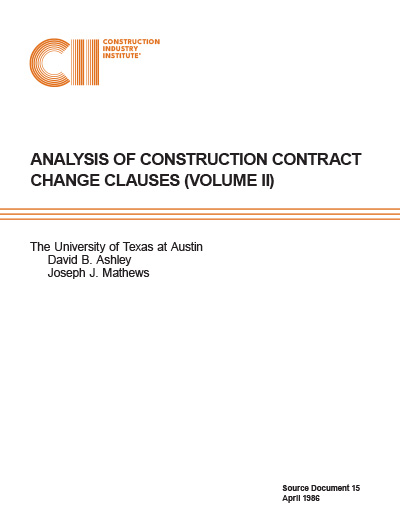
Analysis of Construction Contract Change Clauses, Volume II
Publication No
SD-15
Type
Academic Document
Publication Date
Apr 06, 1986
Pages
136
Research Team
RT-005
DOCUMENT DETAILS
Abstract
Filters & Tags
Abstract
Filters & Tags
Knowledge Area
Project Phase
Project Function
Industry Group
Research Topic
Contracts
Keywords
Fixed-cost contract,
Cost-reimbursable contract,
Contract clauses,
Allocation of risk,
Incentive plans,
Work scope definition clause,
Change clause,
Project control clause,
Cost effectiveness,
Indemnity,
Consequential damages,
Differing conditions,
Delay,
Prime Contractor,
Contract type,
rt5



